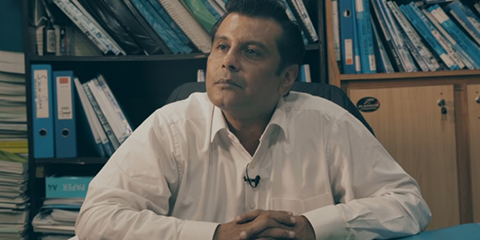Two years on, Pakistan remains silent on Arshad Sharif's murder
JournalismPakistan.com | Published: 23 October 2024 | JP Staff Report
Join our WhatsApp channel
Arshad Sharif was murdered in Kenya two years ago, prompting ongoing calls for justice from his widow. The Pakistani government has yet to take accountability despite international rulings.Summary
ISLAMABAD—On October 23, 2022, renowned Pakistani journalist Arshad Sharif was shot dead by police officers in the Magadi area of Kenya, a tragic event that sent shockwaves across the world. Two years later, the fight for justice continues, with his widow Javeria Siddique leading the charge. Despite the ruling of a Kenyan court, which found the police action to be illegal and a violation of Sharif's human rights, Pakistan has yet to hold anyone accountable.
Sharif, who fled Pakistan in April 2022 after a no-confidence motion against then-Prime Minister Imran Khan, sought refuge in Dubai and Nairobi. His career as an outspoken journalist, coupled with his critical stance on government policies, had made him a target. As Javeria Siddique recounts, her husband was receiving death threats in Pakistan, with chilling warnings that he would be "shot in the head."
Those warnings became a grim reality. Sharif’s body bore undeniable signs of torture: he had 18 to 19 marks of abuse, had been shot both in the head and back, and several of his nails were missing. Disturbingly, one of his kidneys had been removed, ribs were broken, and part of his skull was missing. Javeria expressed her agony: "It would have been better if wives would die before their husbands." She publicly accused Pakistan's ruling elite of involvement in her husband’s murder, but justice in Pakistan has yet to come.
In July 2024, a glimmer of hope appeared when the Kenyan High Court, led by Justice Stella Mutuku, ruled that the firing by Kenyan police was illegal and ordered legal action against the officers involved. Additionally, the court awarded Sharif's family Rs21.67 million in compensation. Justice Mutuku emphasized that no one is above the law, and all people are equal under the constitution, reaffirming the importance of human rights.
While the Kenyan court's ruling was a step forward, Pakistan remains largely silent. Despite the overwhelming evidence and public outcry, there has been no serious investigation or action taken against those who may have played a role in Sharif’s death, either within or outside the country.
Javeria Siddique's tireless fight for justice has drawn attention to the broader issue of press freedom in Pakistan. With many journalists facing intimidation, threats, and violence, Sharif's case serves as a stark reminder of the dangers they face daily. His widow has not only fought for justice but also highlighted the immense pain and suffering the family has endured: "It's a brutal betrayal of trust and a gross violation of human rights. Imagine the pain of losing a loved one, combined with the frustration of seeing those responsible go unpunished."
Her words resonate with many who have witnessed the shrinking space for free speech in Pakistan. The ruling elite, accused of involvement in Sharif’s killing, remain unaccountable, and the broader question remains: how long will it take for Pakistan to confront the systemic failings that have allowed such tragedies to occur?
Arshad Sharif's murder is more than just a personal tragedy; it is a reflection of the wider threats facing independent journalism in Pakistan. His death has become symbolic of the risks journalists take to expose the truth. As Javeria continues her battle, Sharif's legacy lives on through his work and the determination of those fighting for justice.
The Kenyan court's ruling is a beacon of hope, but it is not the end. The Pakistani government's inaction in addressing the case of one of its most prominent journalists is a testament to the challenges faced by those seeking justice. Until true accountability is achieved, Arshad Sharif's story will continue to haunt the conscience of a nation.
KEY POINTS:
- Arshad Sharif was shot dead by police in Kenya on October 23, 2022.
- His widow, Javeria Siddique, leads the fight for justice amidst ongoing silence from Pakistan.
- The Kenyan court ruled the police action was illegal and awarded Sharif's family compensation.
- Sharif's murder highlights the dangers facing journalists in Pakistan.
- Calls for accountability continue as evidence against the ruling elite mounts.

























